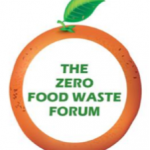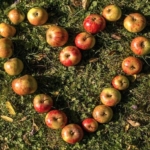By Food Waste Reduction Committee Members, Susan Miller Davis, Infinite Table and Susan Blachman, Blachman Consulting
SB1383, signed by Governor Brown in 2016, requires reductions in short-lived climate pollutants, similar to the way AB32, the Global Warming Solutions Act of 2006, does for greenhouse gases. SB1383 specifically targets organic waste methane emissions.
CalRecycle is developing the regulatory language to support the following targets under SB1383: a 50 percent reduction in the level of statewide disposal of organic waste from the 2014 level by 2020; a 75 percent reduction in organic waste disposal by 2025; and the recovery of 20 percent or more of edible food that is currently being disposed for human consumption by 2025.
Since the bill’s passage, CalRecycle has been holding workshops on the regulatory language. The most recent workshops were held on May 7 & 8, 2018. The following is the Table of Contents of the May 2018 proposed regulations. For more information and documents., visit the CalRecycle Public Meeting Notice.
Article 1. Definitions
Article 2. Landfill Disposal and Reductions in Landfill Disposal
Article 3. Organic Waste Collection Services
Article 4. Education and Outreach
Article 5. Generators of Organic Waste
Article 6. Biosolids Generated at a Publicly Owned Treatment Works (POTW)
Article 7. Regulation of Haulers
Article 8. Cal-Green Building Standards
Article 9. Locally Adopted Standards and Policies
Article 10. Jurisdiction Edible Food Recovery Programs, Food Generators, and Food Recovery
Article 11. Capacity Planning
Article 12. Procurement of Recovered Organic Waste Products
Article 13. Reporting
Article 14. Enforcement
Article 15. Enforcement Oversight by the Department
Article 16. Penalties
SB1383 will require local governments to impose new levels of collection service for generators, develop new sources of organics recycling and edible food recovery capacity, and comply with new levels of state and local oversight. CalRecycle has received considerable feedback on the most recent draft, so we expect it to continue to be revised.
In 2019 CalRecycle will be networking, providing technical assistance, and developing tools, model ordinances, contracts, and case studies to support efforts at the local level to meet the organic waste reduction targets and comply with the regulatory requirements.
In the meantime, NCRA will be holding the Zero Food Waste Forum on October 16, 2018 in Berkeley focused on innovative ways local governments are implementing and can comply with Article 10, the edible food element.
A related bill, AB 1219, the California Good Samaritan Food Donation Act, adopted in 2017, should help with food recovery. It strengthens and expands liability protections for food donors. Among its provisions, the law requires health inspectors to educate businesses about the laws that exist to protect food donors from liability, which is the first time a state has done this. To assist health inspectors, staff at a number of non-profits (the Public Health Alliance of Southern California, the California Conference of the Directors of Environmental Health, and the Center for Climate Change and Health, with support from The California Endowment) produced the Safe Surplus Food Donation Toolkit, to educate food facilities about safe surplus food donation, including information on liability protections, state mandates, and safe surplus food donation practices. The Toolkit includes websites where food generators can find recipients of donated food.
If you know of any feeding organizations that are not included, please encourage them to get listed. They are: Sustainable America Feeding America and Ample Harvest
# # #

 We are pleased to announce the second Zero Food Waste Forum to be held October 16, 2018 in Berkeley, California, hosted by the Northern California Recycling Association and the Solid Waste Association of North America Gold Rush Chapter.
We are pleased to announce the second Zero Food Waste Forum to be held October 16, 2018 in Berkeley, California, hosted by the Northern California Recycling Association and the Solid Waste Association of North America Gold Rush Chapter. 